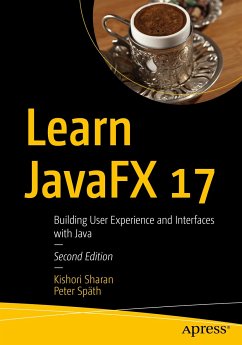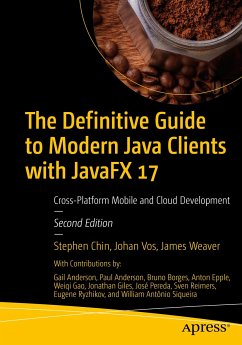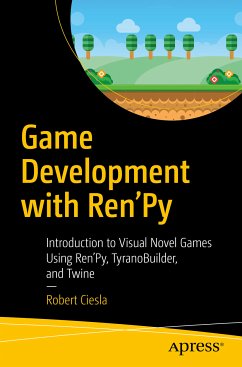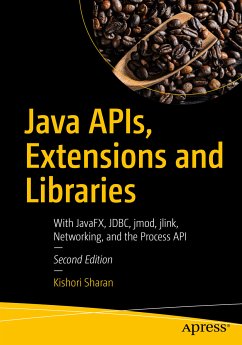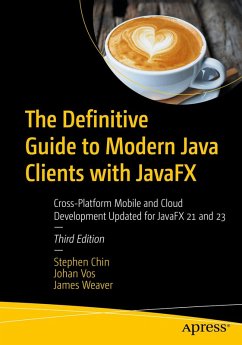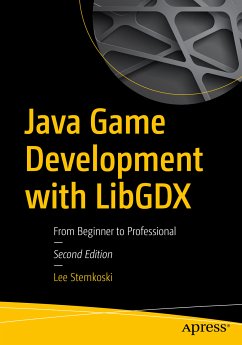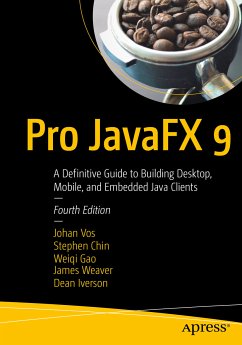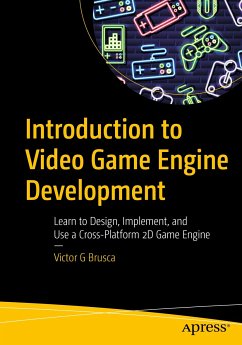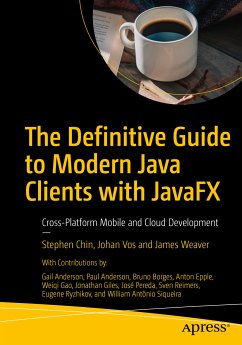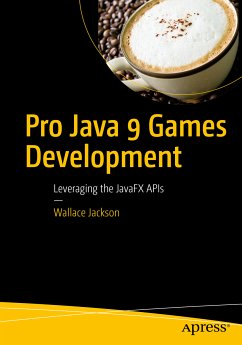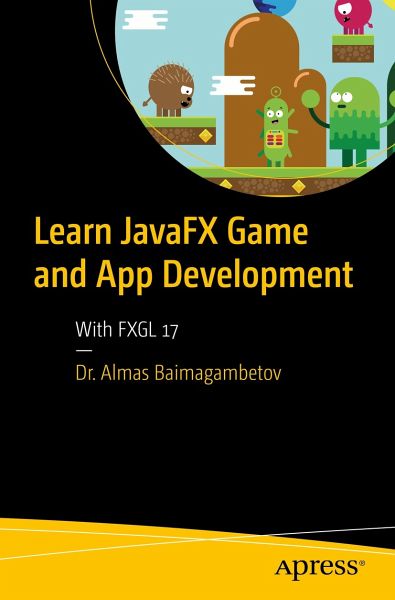
Learn JavaFX Game and App Development (eBook, PDF)
With FXGL 17
Versandkostenfrei!
Sofort per Download lieferbar
43,95 €
inkl. MwSt.
Weitere Ausgaben:

PAYBACK Punkte
22 °P sammeln!
Understand real-world game development concepts using JavaFX game engine called FXGL. The core focus of the book is on developing a standalone game or application with FXGL. We will start with an overview of the book followed by requisite concepts from Java and JavaFX that will be used throughout this book. Next, we will learn about the FXGL game engine and its wide range of real-world game development techniques. In the following chapter, we learn about entity-component model used in FXGL to create a powerful abstraction of the game world. The next chapter builds on this, where we develop a p...
Understand real-world game development concepts using JavaFX game engine called FXGL. The core focus of the book is on developing a standalone game or application with FXGL.
We will start with an overview of the book followed by requisite concepts from Java and JavaFX that will be used throughout this book. Next, we will learn about the FXGL game engine and its wide range of real-world game development techniques. In the following chapter, we learn about entity-component model used in FXGL to create a powerful abstraction of the game world. The next chapter builds on this, where we develop a platformer game using the physics engine and a popular external tool called Tiled. An important concept of games AI is covered in the following chapter. Visually complex features related to graphics and rendering as well as UI elements and animation system in FXGL will be discussed in the next chapter. The following chapter is dedicated to non-game applications that can be developed using FXGL. The last two chapters cover packaging and deployment of JavaFX and FXGL applications and discussion on future projects.
The key take-away skill from this book is the ability to develop professional-level applications and games with FXGL. During the course of this book, you will have produced a range of cross-platform applications and games using FXGL, reinforcing the game development concepts covered throughout.
What You Will Learn
. Understand use of advanced Java and JavaFX concepts
. Learn about real-world game development concepts in a general-purpose programming language
. Master professional cross-platform, desktop and mobile, games using the FXGL game engine
Who Is This Book For
This book is for beginners in Java and/or JavaFX who wish to develop apps and games with FXGL, while improving Java and JavaFX skills.
Dieser Download kann aus rechtlichen Gründen nur mit Rechnungsadresse in A, B, BG, CY, CZ, D, DK, EW, E, FIN, F, GR, HR, H, IRL, I, LT, L, LR, M, NL, PL, P, R, S, SLO, SK ausgeliefert werden.
Alle Preise in Euro und inkl. der gesetzl. MwSt. | Innerhalb Deutschlands liefern wir preisgebundene Bücher versandkostenfrei. Weitere Informationen: bitte hier klicken
Support
Bitte wähle dein Anliegen aus:
Rechnungen
Bestellstatus
Retourenschein
Storno



